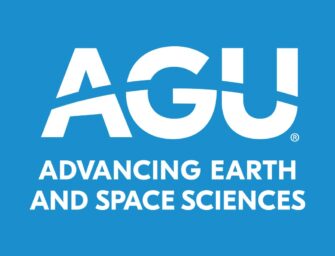AGU Releases Report to Address Flooding in Communities
AGU’s global community of Earth and space scientists has contributed research and expertise to our understanding of—and solutions for—climate change, natural hazards, and their related impacts on people. Climate change, the increasing severity of extreme weather, and resulting floods are health and economic crises that we cannot ignore.
To highlight the role that science plays to help address and mitigate issues such as flooding in communities across the United States, AGU released a report today titled Surging Waters: Science Empowering Communities in the Face of Flooding. This report, reviewed by leading experts, demonstrates how science is integral to solutions that will mitigate destructive impacts on people and property in the future.
Surging Waters has been released at a crucial time for our society. Floods are the costliest, most frequent type of disaster in the United States, accounting for hundreds of deaths and billions of dollars in economic losses every year. Hurricanes cost the U.S. economy an estimated $54 billion annually in damages and storm-related flooding. Flash flooding along rivers and streams is the second leading cause of death in the nation from extreme weather. Coastal flooding tied to rising sea levels is increasing and, even with clear skies on sunny days, puts communities and key military installations in jeopardy.
No state in the United States is spared the impact of flooding. In fact, an estimated 40 million Americans have a 25% chance that their home will flood before they can pay off a 30-year mortgage. To illustrate the repercussions local communities face, Surging Waters highlights three types of flooding—flooding due to hurricanes, floods in the central United States, and coastal flooding—through stories and interviews with residents and scientists working in Houston, Texas; De Soto, Mo.; and the Hampton Roads area in Virginia.
Just in time for National Preparedness Month, Surging Waters closes with recommendations to build a solid foundation for a strong, more sustainable future. Scientific collaboration, community collaboration, and financial support for science can help address the complex challenges posed by flooding and extreme weather nationwide and across our borders. Science and scientists are key elements of these solutions, but they need economic support from federal and local governments, and, in turn, they must be relevant to, accessible to, and engaged with communities.
The key to solutions will be to
- Empower communities to make informed decisions about their future;
- Empower scientists to conduct robust scientific research and data collection about flooding and its related issues; and
- Prioritize partnerships that foster collaboration, knowledge sharing, and better communication among scientists who study both the physical world and human behavior, and between scientists and communities.
Over the next year, AGU will conduct outreach to communities, organizations, science centers, and policy makers who can help follow through on these recommendations. In addition to the report, we have created a number of engaging multimedia, from state fact sheets and resources, to a fact sheet on the connection between flooding and climate change, to videos featuring local scientists and residents affected by flooding. By early October, AGU will have a Spanish translation of the full report and the climate fact sheet.
I encourage AGU members, members of the broader scientific community, and members of the public to visit Science Is Essential to download the full report and consider conducting your own outreach around the issues raised. On that site, you can also contact your policy makers and urge them to support sustained funding for crucial federal scientific research. I also hope AGU members will consider volunteering for Thriving Earth Exchange projects in their local areas. Some Thriving Earth Exchange projects are highlighted in Surging Waters, and the community-based solutions have been a game changer in addressing climate change, natural hazards, and natural resource challenges.
Scientists are on the front lines of protecting America’s public safety, health, and economy. Ensuring that their work can continue will inspire readiness, empower communities to make informed decisions about their future, and build a more resilient society for us all.




There are no comments
Add yours